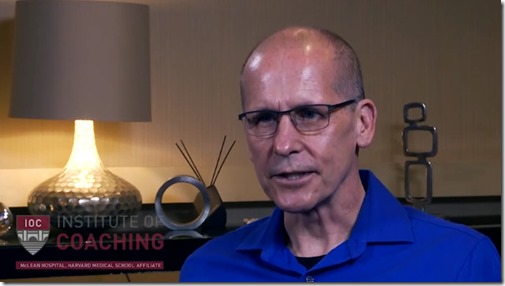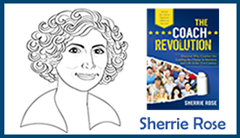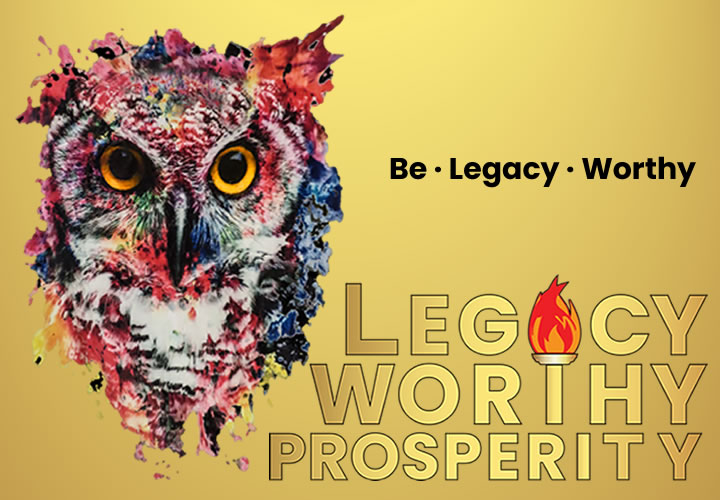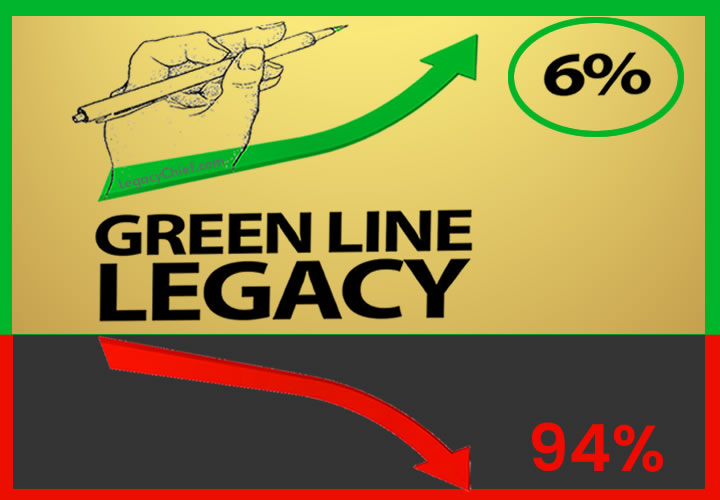How coaching helps executives learn and grow more effectively

How did you become a coach and get into coaching? One of many questions posed to Google Coach, David Peterson Ph.D. as part of the Harvard Business Review. Included are excerpts from the video interview with David on “Becoming a Coach” at Google for the last seven years, since he started in 2010. See also this short video; click image below.

David Peterson PhD: Fields of Study Relevant to Coaching
My name is David Peterson I’ve been providing executive coaching to senior leaders and consulting to organizations on leadership development and executive coaching for several decades.
Interviewer Carol Kauffman >How did you became a coach and get into coaching?
Very early on I joined a company called PDI back in the 80s. They were one of the innovators and beginners in the field of coaching. At that time we called it management coaching. Only later we said “executive sells better” than the word management. We were really figuring out how to help individuals learn and grow more effectively.
And we started meeting once a week to talk about “How do we get better at this?” “How do we provide the greatest value to our clients?” We really developed and innovated a lot around one-on-one executive coaching. That’s where I learned coaching; just very hands-on with my colleagues.
Interviewer > Primary question is: “I’m in a coaching practice, how do I grow myself, how do I better myself?” Not in terms of growing the business practice but making themselves a better coach.
I think about the growth of coaching and developing one’s coaching capabilities in three stages:
(1) It often starts with just learning a model
(2) Learning an approach, learning a process
(3) Then starting to use some basic tools and really getting grounded in some core fundamental skills, listening skills, asking questions, giving feedback, and some basic models about how do you begin the conversation. How do you move through it; how do you transition to action assignments and it’s a fairly straightforward way.
I encourage people to start off by coaching the people that they think they can actually help the most. So don’t aim too high. Just get a lot of experience where you can really add value, and then grow into that the second stage. For most new coaches they start to internalize a lot of the processes. They start to say to themselves, “Oh this might be more helpful here, or I’d like to try this,” and they get very comfortable with their approach their tools their techniques and they continue to learn.
Most of coaches will take classes and go to conferences and summits and continue to incorporate new ideas and new techniques. At that point, I think it’s most important for coaches to decide: “How good do I want to be? Do I want to stand out from the crowd or just continue doing what I’m doing? So for people who are consultants and do a variety of things staying at that level might be fine but people who really want to differentiate themselves as coaches who really want to specialize in this area need to push themselves farther.
There’s a lot of research on the development of expertise and mastery, and most of it applies to coaching, and it starts with two fundamental things:
(1) First about 10,000 hours of practice. You just have to get out there, work at it, get your clients practice even apart from your clients, think about how do I practice my coaching skills in every conversation I have? How do you be fully present and pay attention to whoever you’re talking to and really listen and explore their thinking?
(2) Second aspect is what is called in deliberate practice being very intentional about the desire to grow and to get better and starting to work at very specific things. For example, I practiced one question with all of my clients for about six months, so I worked very intentionally on figuring out How Do I Craft The Best Possible First Question For My Client
What do YOU want to work on, WHAT do you want to work on, what do you want to WORK on? (Repeated with different emphasis) And if you can you hear in the intonation they’re getting it very different things. So I feel like I developed a lot of expertise just around that one specific question and so it’s that relentless pursuit of how do I get better at this thing and then how do I get better at that thing and how do I get better at providing feedback and really a disciplined up coach to practicing that personal interest of mine.
Interviewer > The idea that coaches not only had to be practicing their craft but they have to be on the receiving end – Do you have an opinion or a comment on being coached? What I’m saying is really coaches getting into their own material – where are they getting in their own way that clinic stuff?
I’ll step back and look at that question from a little bit broader perspective. So I think fundamentally coaching is about helping people learn and right now I believe there’s too much focus on coaching. What do coaches do and were things like asking powerful questions – for me really miss the point. It’s not about the coach asking questions – it’s about figuring out how to cultivate real insight in the learner/coaching client. You can do that through many techniques through looking at somebody quizzically, through asking them questions through feedback, through suggesting that they try new things, and watch how they play out.
That focus on helping the learner be a better learner has to start with the coach. A real example, one of my colleagues said to me, “David you have a default mind of curiosity. Everything you approach, you’re curious about, you’re open to, you’re trying to learn from.” I think that is a reflection of my own commitment to learning but I think coaches have to really pay attention on to:
(1) how do I become aware of myself,
(2) how do I develop my own skills,
(3) how do I model learning,
(4) how do I seek feedback from my clients,
(5) how do I seek feedback from others in terms of really building my own skill set my own self-awareness
Then I think there’s a very strong thread of getting clear on who do you want to be as a coach.
In one of my leadership models I have an emphasis on starting off by looking inward who do you want to be and I think the same thing applies to a coach who do you want to be as a coach what values do you want to live by what will inspire others to follow you and be interested in you what kind of mission do you have as a person and as a coach, and that’s such an important part of developing oneself as a coach.
Interviewer > Good. Talk a little bit about your leadership models.
That starts with a looking inward and moves to look outward so look around you, what’s happening in your team, in the organization in the economy, in your industry ecosystem in the macro-economic climate, and the geopolitical. You’re just expanding spheres of influence: next is what’s going on around and third is looking forward where are things being innovated, where are things changing, what are the trends, what’s happening in markets, how are they moving and shifting forth. Look around.
Now look at your team and think about what can they do? Are they willing to follow me? How’s their level of morale? What can we actually begin to do given all the other information we have? After looking inward, looking out, we’re looking forward and then finally I call it “GDS” a ‘go do something’ amazing.
The end goal of all of that looking is to get good information. To be aware of what’s happening, to really take an objective, fresh look at things, and figure out where can I have the greatest impact given who I am, given what’s going on around me, given the team that I have, given the broader industry. What can I actually do that’s going to be amazing and have some impact and really make a difference?
Interviewer > Could you give me an example of how you would use that as you were coaching someone?
So it doesn’t necessarily work linearly. It’s not like we go through each of those steps. For example, one person invited me to come work with him on his presentations. We started off at a fairly superficial level. Stand up there, what’s your opening, what do you want to say, what’s your goal, and we practiced some of those components. Then I asked him, what’s the impact you want to have on people? What are the values that you’re bringing? Is that you want to communicate to people? How do you want people to think about you as a leader?
Interviewer > Now let’s go back to the beginning of your talk and look at how you inject your own personal stance as a leader?
What was really fun about this person I was coaching in particular, was he started standing up straighter, he started speaking much more from the heart, even sometimes it was the same words, sometimes it was different words, sometimes it was more explicit but you could just see this thing rise in him. He has never been a very clear communicator. After that presentation, people said not only could he communicate more clearly but they started to respect him more as a leader. I was really proud just of that half hour conversation that we had. We’ve continued to talk about, who do you want to be, where do you want to go, what kind of organization do you want to build, and right now he’s in the middle of restructuring his organization and he’s delegating part of it to somebody else partly because he’s thinking this side of the organization is not where I want to invest my time, so I’m going to move this over to somebody else. It’ll be a good development experience for them, and it’ll give me the time to really grow and leave this and make the mark that I want to make. We’ve spent a lot of time in that reorg talking about looking forward where do you want to go what are the trends, how do you start to set things up now, for long-term success for the person he’s delegating part of the organization to. He’s really thinking about how do I coach and help that person to help them develop their own skills and step up as a leader, so it shows up in very simple ways. He identified that person as part of the “look around who could I give that to, where are they at right now, what needs to happen? The ultimate goal that he has is real to take this organization (this is Google that we’re talking about) and doing something 10x more transformational!
Interviewer > What I hear in the answer, and it’s a great example, thank you, is the flexibility and the need for the mastery. Because you need to know how to use a model in a nonlinear way and you need to know that it’s more than following just a prescription. I also hear, and I’d like your opinion on it something I’ve been seeing and that is a desire in many coaching clients to want to learn how to be coaches in within their roles in their organizations themselves. Are you seeing that at Google?
Being a coach is one of the fundamental assumptions about being an effective manager. A few years ago we did some research that was published called Project Oxygen (a comprehensive program applying analytics approach in addressing human resources needs that measures key management behaviors and cultivates them through communication and training—and the company had shown statistically significant improvements in multiple areas of managerial effectiveness and performance.)
Google really looked at what are the competencies and capabilities and behaviors that differentiate the best managers from everybody else. One of the things that most clearly differentiated the most successful managers was coaching. Coaching others and providing clear expectations, giving people feedback, holding them accountable, helping them grow and become more effective performers. That’s just hardwired into our system at Google. We have internal employee surveys. You know my managers coaching me. There’s a lot of attention on that and not everyone wants to do it or likes to do it or does it well but it’s seen as a very fundamental part of how managers work at Google.
Interviewer > Well it’s very different from the older style management models. It’s much less, you know, “Tell me what to do and I’ll do it.” I would guess under that model that wouldn’t be particularly attractive in an organization like yours. It’s a very new organization that way.
We don’t have a lot of entrenched behaviors or old you know hierarchical style behaviors. One of the things my manager said at one point was just think the worst behaviors in the culture can be no more than 15 years old so they’re not that well ingrained kind of habit that’s harder to change.
Interviewer > I hope this isn’t an unfair question but looking at a situation that many of our coaches would have which is an ingrained long-term entrenched pattern. What would you do with a leader in that in that pattern if you were assigned something like that?
Now someone who is just very, very enmeshed in old habits and old styles of leadership and closed down, I would start as I do with most of my coaching by asking people (Do you remember the earlier question?) > What do you want to work on? What is your biggest challenge? Where would you like to be more effective? Where are you most frustrated that you’re not able to get the results that you want?
It’s tapping into some of that momentum and almost always if you can show people how to get their results. Results that are something that they care about in a way that is actually quicker and faster and easier and builds better relationships with people. Spending time coaching and assisting people and they’re very willing to do that, but the fundamental motivation starts with what they care about.
So if they want their team to move faster, then telling them to move faster probably they’ve tried it, and it doesn’t work. Instead, we begin to explore other options: How can you get them to move faster? Oftentimes we’ll end up with, “Well I don’t understand what motivates them I don’t know why they’re moving so slow.” Well, what about going and talking to them and asking them? Find out by watching them and getting a clearer picture of what they care about. Then how can you use what they care about to start to change their behavior. Then they just begin to think differently about this. I can’t tell them that hasn’t worked, but if I do know what they care about and why they’re doing what they’re doing, I might have some leverage in getting them to shift. Another coaching tactic has you really asking the leader, “Have you really been clear about your expectations?” Most leaders will tend to say do this or let me give you some feedback and not step back and say here’s the target, here’s what I’m expecting of you, here’s the success factor that I see for you in your role. What matters to you, what matters to me? Now let’s negotiate between those two things and figure out what course of action is going to help us both be happier. It’s striving for that fundamental win-win that I think is the success factor in effective coaching.
You know that my client gets something very useful out of it and the organization does, too. In helping leaders be more effective they need to get their results met, and the best way to do that is to make sure that the employees get their needs met.
Interviewer > Good, thank you. Do you use the same method if you’re coaching a team as opposed to an individual?
Basically, yes. So one of the frameworks that I use is called the development pipeline, and it applies to individuals, to teams, to organizations, but it’s looking at what is the main constraint in terms of making progress and changing and growing and learning and developing.
First factor, it starts with insight: Do people know what is expected of them, do they know what matters to them, do they know where some kind of change will actually result in improvement?
Second factor, motivation: Do they care, is it worth them investing time and energy in making those changes? For teams, they often have very different motivations so each individual is motivated to do something but getting alignment for the team around some kind of clear purpose. That’s where better leadership can come in in terms of being inspiring and motivating and connecting people and harnessing that motivation.
Third factor is capabilities: Do they have the skills and knowledge that they need to actually do what’s expected of them? This is often the default that managers revert to when the team’s not effective. Like get them some training and very often the actual gap is either insight or motivation. They’re not exactly sure what they’re expected to do or they’re not incented for it, or they’re not measured on it. Then they don’t have the motivation to change.
Fourth factor is what I call real-world practice. That’s taking those good ideas and those new skills and actually using them in the setting where it matters. It’s the often neglected part of learning for people. When you go to a class or training and get some feedback you have all these great intentions. Then the half-life of a great intention is very short so you leave that and you get distracted by everything else going on. You fall back into old habits, old patterns of behavior. That’s where a manager or a coach can really be effective in saying okay what will you do differently tomorrow? Where will this change begin? Let’s find one simple small step where you can actually go begin to make this change happen.
Then finally accountability is anybody paying attention does it really matter if I make these changes? So if I’m a manager and I’m talking to my team, here’s what I’m expecting of you, here’s why it’s worthwhile, here are the skills that you need, let’s talk about where you begin to make this change and I’m going to follow up with you in two days to see you. Did you actually do it? How did it go and sometimes it feels like you know it’s too much effort and you’re holding their hands and you shouldn’t have to but it’s actually helping people through part of the hardest part of change. It’s actually breaking the habits trying something new and realizing it does matter to my manager and so as a coach I may not follow up with somebody every other day but I do want to hear what have you been trying, how is it working, where are you making progress, where are you getting stuck and by asking those kinds of questions a manager can lead their team and their individuals to make some small steps, create some momentum, and actually make progress, and do course corrections very quickly where needed.
Interviewer > I appreciate that you’re highlighting the importance of actual practice. You can sit and talk about it forever and something else that that I would throw into it is, “Okay you didn’t do it let’s just let’s not go to criticism let’s look at why what do you have to change so that you can do it or what do we have to change in the assignment so that you can do it.” Something like that.
Yes, it’s not just about the individual changing and doing things differently. One of the things my colleagues and I have been talking about lately is how significant a factor the environment actually is on how people behave and their willingness to change. So if you just look at the individual, say you have to make changes without looking at the broader context of how are they measured or what kind of it is risk tolerated in our organization. So if it’s a very risk tolerant organization you can ask people to try things more aggressively, if it’s a very conservative organization you want to move ahead and very small very safe steps provide a lot of support and encouragement and provide air cover so they don’t feel like they’re overly vulnerable.
Interviewer > What do you see as the as the cutting edges the emerging ideas in coaching?
I think we are seeing some segue on the verge of some significant changes in the field. The supply side of coaching lots of people interested in coaching, lots of people coming in, lots of people wanting to be coaches, and lots of people doing coaching as part of some other work that they do. So anybody who’s working with the senior executive, their legal counsel, their financial folks, HR, they were going to start offering help and advice. You have that situation where they can encourage people or nudge them or give them tips and advice so coaching itself is starting to be worked into so many other activities and roles. You’ve got that side of it, you’ve got the other coaches coming into this, you’ve got actually leaders becoming better at developing themselves, and so all of these things are creating a very competitive space. The end result is coaches have to continue to really get good at what they do. Coaches have to really define a niche specialty and become excellent at something as opposed to being a, “I can coach anybody on anything.” Coaches must really get good at some of the most challenging kinds of coaching assignments; dealing with the difficult leaders dealing, with the resistant people who are resistant to change dealing with people who are stubborn and independent and set in their own ways.
Back to the mastery idea and the specialization. Yes, interesting what’s changing about coaching at Google. This is not so much something that’s changing at Google but what is working at Google. This has changed my perception of coaching in a couple of very significant ways. First of all, and I think this leads back to the question about what’s changing in the coaching field, Google is an environment that operates very quick things are constantly changing. It’s very results oriented, and so people want to see impact very quickly. Some of our coaches come in and they want to talk with people, they want to spend two or three hours building the relationship building rapport, and we want coaches who can come in and have impact quickly, establish that rapport, get results add value, and get the person to go out back and start making changes very quickly. The Googlers are very motivated to go back and change. They want to be effective, so the significant difference for me has been they take responsibility faster and better than most of the clients I’ve worked with in the past. In terms of the cloud pipeline team, more of my work is now on creating space for reflection to help them increase their insight. Where do you want to go, who do you want to be, where is your leverage for making change, and less on the motivation, less on building the capabilities because they’ll figure stuff out. They’re really good at once they know the direction. Just going off and doing it but they’re so busy so they may not take the time to step back and really reflect and look farther ahead. So that the creating the space for them is often times not always but often times the most significant thing that I can do as a coach. In the past it was much more about helping tap into their motivation helping to build capabilities, helping them to figure out where they actually going to make the change, holding them accountable. So it’s a very different aspect of the pipeline that I’m working on right now.
Interviewer > Is there something in there about their willingness or their openness to trying things new and maybe about their curiosity to go back to something you said earlier that in more traditional coaching situations we have to work on first. It sounds like maybe you can shorten the time frame.
We’ve hired, by and large, really smart achievement-oriented people who are naturally good learners, who take responsibility for figuring things out. They’re used to trying to figure out what’s next and so they’re very good at the learning process. They’re very motivated to change and grow and they know that things are changing around them they’re very familiar with that concept that tomorrow is going to be different in some unpredictable way. They’re far more attuned as learners than a lot of other people. So in every organization, you find people like that, and I think it’s just that Google has a much higher percentage.
Interviewer > It sounds too as if you (Google) may have a higher percentage of people who understand accountability which is another key piece to this in my experience.
Yes, being willing to take accountability for themselves in their own. They’re very achievement-oriented, they want to see results, and they want to have impact. I’ll go back to the first question advising somebody who wants to come in as an organizational coach and wants to better themselves for mastery, we would just direct them on where to learn.
One of the things that first amazed me about coaching when I was learning was all the different disciplines and fields of study that are potentially relevant. Understanding human motivation, the psychology of behavior change is a skill worth learning. That’s one aspect how to connect to people with emotional intelligence listening skills. That’s a whole other interpersonal dynamic and is another area of where it’s useful to really develop skills and understanding.
Knowledge of business is important so that you can be credible to somebody. Do you understand the terminology and the language in the world of business? Another domain is leadership and managerial effectiveness – do you know how to help people actually be better leaders and managers of people?
Then there’s organizational systems and dynamics – knowing how teams get along. How do organizational hierarchies work? You have all of these different domains of knowledge you can’t possibly learn them all but you need a minimum foundation in everyone. There’s more you know than just those areas but if you don’t have a familiarity with those areas and where you want to be working as a coach.
I think you just figure out how you’re going to grow your skills in each of those areas. You’re reading about business, reading about management and leadership effectiveness, reading about emotional intelligence and interpersonal effectiveness. Coaches often gravitate towards “the touchy-feely” side of people skills and emotional intelligence side. Coaches may neglect the harder areas of understanding of business or leadership or vice versa to get locked into some particular strategy consulting or something and don’t develop the actual coaching skills and the interpersonal rapport that’s necessary. Having a well-developed and fairly broad portfolio but you don’t have to have expertise in all of them. You really only have to have expertise in one or two areas. What I would pull out of that is the need to tailor your capabilities to the assignments and the clients that you’re going to put it yourself forward to.
I had a CEO who once said, “Why should I work with you? You’ve never been a CEO.” I said, “Well I have worked with 30 CEOs I have helped 30 CEOs be more effective.” He said, “Yeah but you don’t know what it’s like to live in my shoes.” I said, ”Absolutely not, I have no idea what it’s like to live in your shoes that’s not the value that I bring. The value that I bring is the ability to help you learn, grow, change. How easy is it for you to change your habits? It’s really hard – okay that’s what I do. I don’t need to understand your day-to-day life but I can help you with the things that you’re having challenges with.”
So I connect and communicate in a reasonably effective way about his world but I don’t have to know that much because I bring a different kind of expertise to the coaching experience.
“The best advice I ever got: Find a coach!”
Eric Schmidt on becoming CEO of Google.




